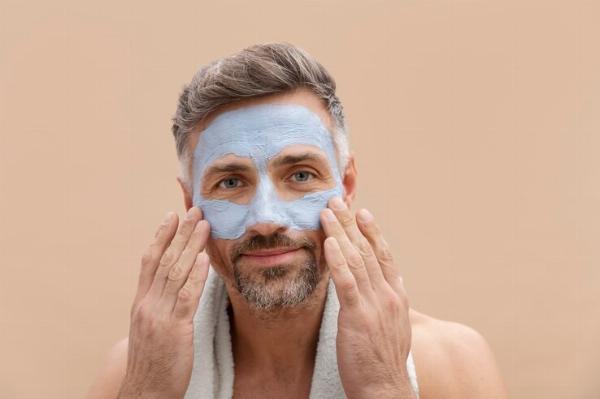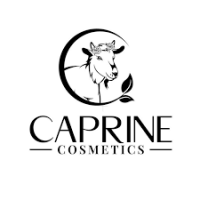Anti-Aging Creams for Him & Her: Breaking the Skincare Taboo

Strong 8k brings an ultra-HD IPTV experience to your living room and your pocket.
How Has the Perception of Skincare for Men Evolved Over Time? For many years, there has been a prevalent belief that skincare is exclusively associated with femininity, making it a taboo subject for men. However, there is nothing unmanly about self-care and making efforts to increase one's appearance and well-being.
However, Anti-aging creams are not limited to any specific gender, and there's been a positive shift in recent years towards breaking traditional skincare taboos.
Are Using Anti-Aging Creams Considered Taboo for Men?
Fortunately, in today's society, an increasing number of men are educating and adopting a positive attitude toward incorporating a skincare routine into their daily lives.
Both men and women can benefit from skincare products designed to address signs of aging, as long as the formulations are suitable for their specific skin needs so the beauty industry can better meet the diverse needs of consumers and promote healthy, inclusive attitudes towards skincare for all genders.
Here are some general tips and considerations for both men and women when it comes to choosing anti-aging creams:
1. Use Targeted Formulas
Women's skin tends to be more prone to dryness and may experience hormonal changes that affect collagen production. Look for creams with hydrating ingredients like hyaluronic acid and collagen boosters. Meanwhile, men's skin is generally thicker and oilier. Choose products that focus on oil control and include ingredients like retinol and peptides to address signs of aging.
2. Sunscreen Protection
Regardless of gender, sun protection is important in preventing premature aging. Both men and women should look for anti-aging creams with broad-spectrum SPF to shield the skin from harmful UV rays.
If your cream includes sun protection (SPF), it's crucial to use it consistently, especially during daylight hours. Sunscreen is a key factor in preventing premature aging and maintaining the effectiveness of other active ingredients.
3. Fragrance and Texture
Consider personal preferences regarding fragrance and texture. Some individuals may prefer unscented products, while others enjoy a subtle fragrance. Similarly, the texture of the cream can vary from lightweight gels to richer creams. Fragrances can irritate the skin, so many people prefer anti-aging creams with minimal or no added fragrance.
4. Hydration
Both men and women desire creams that deeply hydrate the skin. Hydration helps plump up the skin, reducing the appearance of fine lines and wrinkles.
5. Ingredient Transparency
Both men and women are increasingly conscious about the ingredients in their skincare products. Check the ingredient list to ensure that the chosen product contains scientifically proven anti-aging ingredients. Retinol, peptides, antioxidants, and vitamins like C and E are common ingredients known for their anti-aging properties. These ingredients can help reduce wrinkles, improve skin texture, and promote collagen production.
6. Skin Type Compatibility
Consider your skin type when selecting a cream. Some formulations may be too heavy for oily skin, while others may not provide enough moisture for dry skin. Look for products labeled as suitable for your specific skin type.
7. Marketing and Packaging
Many skincare brands that produce anti-aging creams are moving towards gender-neutral packaging and marketing to challenge traditional norms. Look for products that focus on the benefits and effectiveness of the ingredients rather than adhering to gender-specific stereotypes. Airless pumps or tubes are preferable to jars, as they help prevent contamination and maintain the stability and efficacy of the active ingredients.
8. Consistency and Patience
Regardless of gender, people want products that deliver results. Anti-aging results take time, and consistency is the key. The users need to follow a daily skincare routine and be patient while waiting for noticeable improvements.
Consistency is not only about addressing existing signs of aging but also about preventing new ones. Regular use of anti-aging creams helps maintain healthy skin and can prevent the development of fine lines and wrinkles.
9. Texture and Absorption
Consider the texture of the cream and how well it absorbs into the skin. A good anti-aging cream should feel comfortable on the skin and not leave a greasy or sticky residue. Men often prefer lighter, non-greasy textures that absorb quickly into the skin, whereas women might be more accustomed to richer formulas.
Some people prefer lightweight gels, while others prefer richer creams. Finding a product that feels comfortable on your skin can encourage consistent use.
10. Affordability and Accessibility
Cost and availability are significant factors for both men and women. Effective anti-aging creams don't necessarily have to break the bank, and consumers want products that are readily accessible both in stores and online.
End Note
The effectiveness of anti-aging creams relies on consistent use over time. Patience and dedication to a skincare routine are important for seeing noticeable results. Individuals can embrace a holistic approach to self-care and grooming by breaking the skincare taboo surrounding anti-aging products. Don't hesitate to challenge stereotypes; prioritize your skin's health and begin your skincare journey today.
Check out our website now for amazing skin products.
Note: IndiBlogHub features both user-submitted and editorial content. We do not verify third-party contributions. Read our Disclaimer and Privacy Policyfor details.


